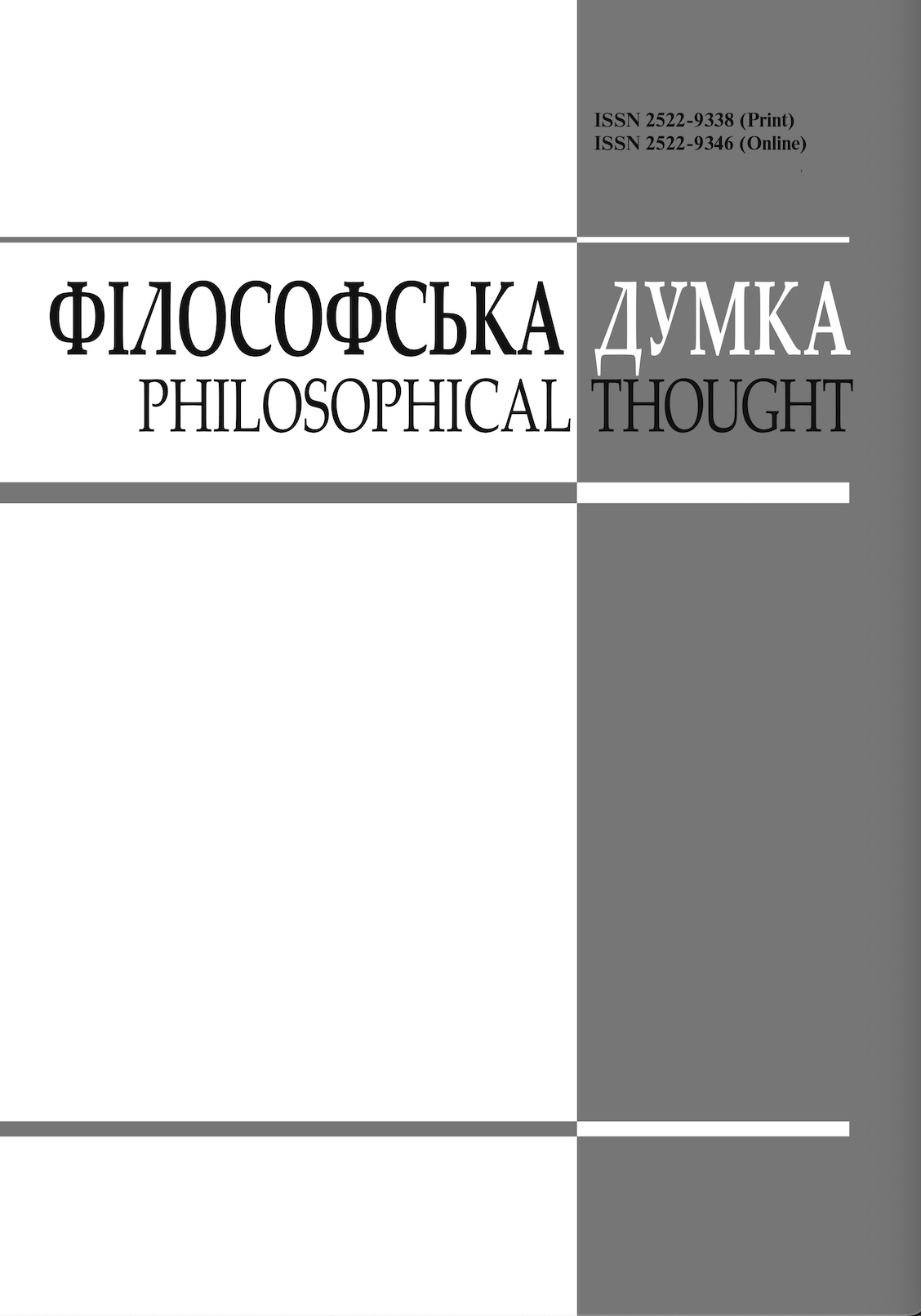Kant on the self-preservation of reason
DOI:
https://doi.org/10.15407/fd2024.02.030Keywords:
Kant, self-preservation, reason, moral theory, enlightenmentAbstract
The concept of self-preservation was one of the central concepts in modern philosophy and jurisprudence. Many researchers rightly point out that this concept was quite justifiably associated with the human reason. In Kant’s philosophy you can also find this idea of self-preservation of the reason, primarily in the sense of the self-affirmation of the reason. But this plot, strange as it may seem, does not play any important role in modern studies of Kant. Undoubtedly, the “rationality of self-preservation” underlies all cognition and action, but this is only one meaning of self-preservation. In “Metaphysics of Morals” Kant talks about “moral self-preservation”, which consists in the fact that a person does not violate his ethical and legal obligations. At the same time, for Kant, self-preservation also stands for a strong moral position that is goal-oriented. In this connection, Kant talks about the preservation of “humanity in our person”. Where self-preservation becomes a special topic in Kant, it is about the sentences about goals, about formation and development, about overcoming immaturity. This topic is explicated through a number of other concepts: self-thinking, self-determination, self-mastery, self-control, self-approval, self-feeling, self-legislation, autonomy, etc. As you know, Kant compares the categorical imperative with a “compass” with which people can orient themselves in their actions. However, for complete orientation, knowledge about the world and people is required; attention must be paid to specific things and real people. In his article “What does it mean to orient oneself in thinking?” (1786) Kant formulates the “maxim of the self-preservation of reason”, which appears as a concretization of the idea that a rational being exists as an end in itself. This maxim is identified with the maxim of self-thinking, the purpose of which is to overcome immaturity. As you know, this fundamental thesis is a program of enlightenment. “The maxim self-preservation of reason”, as the supreme principle of our use of reason, can be interpreted as a maxim of the second order. It is important to emphasize that the scope of application of this maxim is much wider and more comprehensive compared to the scope of application of the categorical imperative.
References
Blumenberg, H. (2012). Die Legitimität der Neuzeit. Erweiterte Ausgabe, 6. Aufl. Frankfurt a.M: Suhrkamp.
Brandt, R. (2007). Die Bestimmung des Menschen bei Kant. Hamburg: Meiner.
Hutter, A. (2003). Das Interesse der Vernunft. Kants ursprüngliche Einsicht und ihre Entfaltung in den transzendentalen Hauptwerken. Hamburg: Meiner.
Kant, I. (1900). Gesammelte Schriften. (Bd. 1-29). (Preußische Akademie der Wissenschaften, Deutsche Akademie der Wissenschaften zu Berlin, Akademie der Wissenschaften zu Göttingen, Hrsg.). Berlin: Reimer & de Gruyter.
Stader, D. (2024). Unmündigkeit. Kant und die soziale Dynamik der Aufklärung. Hamburg: Meiner.
https://doi.org/10.22613/zfpp/11.1.10
Sommer, M. (1977). Die Selbsterhaltung der Vernunft. Stuttgart-Bad Cannstatt: Frommann-Holzboog.
Sommer,M. (1988). Identität im Übergang: Kant. Frankfurt a.M: Suhrkamp.
Downloads
-
PDF (Українська)
Downloads: 355
Published
How to Cite
Issue
Section
License
Authors who publish with this journal agree to the following terms:
- Authors retain copyright and grant the journal right of first publication.
- Authors are able to enter into separate, additional contractual arrangements for the non-exclusive distribution of the journal's published version of the work (e.g., post it to an institutional repository or publish it in a book), with an acknowledgement of its initial publication in this journal.
- Authors are permitted and encouraged to post their work online (e.g., in institutional repositories or on their website) prior to and during the submission process, as it can lead to productive exchanges, as well as earlier and greater citation of published work (See The Effect of Open Access).


